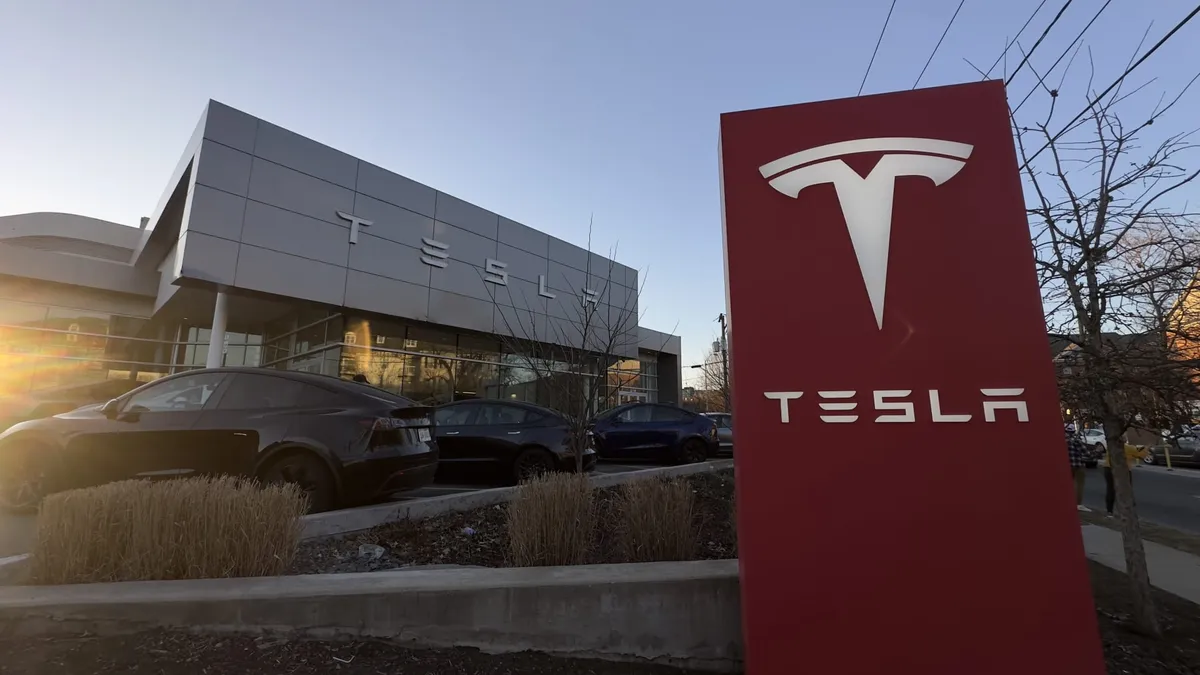
In recent months, Tesla has been grappling with a deteriorating outlook, and analysts at Barclays do not anticipate a reversal in this trend. Following a period of underperformance last year, Tesla's stock price experienced a significant surge after Donald Trump secured his second term in the White House in November. This boost was attributed to the close personal relationship between the president and Tesla CEO Elon Musk. From November 5 to December 17, Tesla shares soared by 91%, nearly doubling in value.
Since reaching its peak in December, Tesla stock has been on a downward trajectory. On Tuesday afternoon, shares closed at $302.80, marking a 38% decrease from their December highs. According to Barclays analyst Dan Levy, multiple factors are contributing to this decline, rather than a single culprit. The reversal of technical factors that previously drove the rally appears to be a significant factor in the sell-off.
Levy explained that the current decline is likely an unwinding of the powerful rally that occurred last fall after the US elections, which was driven by a combination of sharp euphoria and technical factors with fundamentals largely overlooked. Additionally, Bitcoin has also seen a decline since mid-December, mirroring Tesla's performance, suggesting a general pull-back from speculative assets and those benefiting from Trump's presidency.
Tesla's recent underperformance aligns with the broader underperformance of tech giants within the Magnificent Seven cohort. Companies such as Microsoft, Amazon, and Meta are also trading lower this month, although Tesla's decline has been more pronounced. Increased focus on fundamentals has also put pressure on Tesla's stock. The company missed its fourth-quarter delivery and earnings targets, while its sales in China have been weak.
The narrative around Tesla's 2025 volume growth has been downplayed, with the company merely noting a return to growth in 2025 and surprisingly citing battery supply challenges. This marks a departure from the optimistic outlook provided during the 3Q24 call, where Musk projected a 20-30% growth in volume. Furthermore, Tesla faces several headwinds in launching its self-driving software in China, including data security concerns and domestic competition.
Unfortunately, Levy does not foresee an improvement in Tesla's short-term prospects, citing limited catalysts and projecting soft first-quarter results. He expressed growing bearishness regarding Tesla's ability to enhance profit margins. However, Levy expects the planned launch of the Robotaxi in Austin, Texas, in June to serve as a significant catalyst for the stock. He anticipates that interest will build leading up to the event, potentially followed by a 'sell the news' reaction.